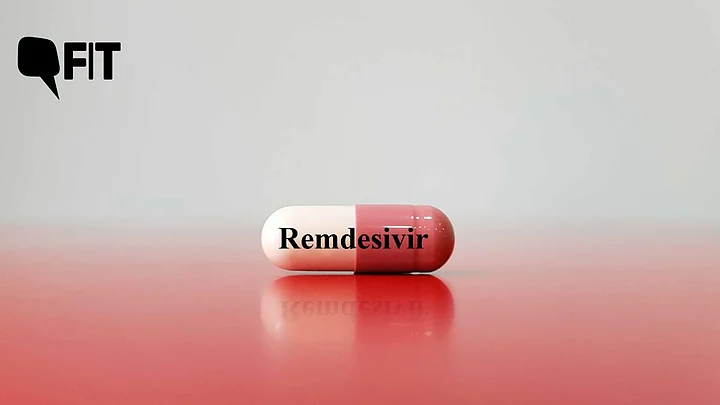Anti-viral drug remdesivir has been granted 'restricted emergency use' in India to treat severe COVID-19 patients. India's drug regulator has granted US pharma giant Gilead Science marketing authorisation via an accelerated process.
What is the Approval For?
The drug has been approved for restricted emergency use for treatment of suspected or laboratory-confirmed COVID-19 cases in adults and children hospitalised with severe symptoms. Several safe guards have been place to protect patient interests.
Central Drugs Standard Control Organisation (CDSCO) says approval was granted following consultations with the subject expert committee.
The use has been restricted to a five-day regimen, based on the findings received by the Drugs Controller General of India, reported The Indian Express. The ‘written informed consent’ of each patient would have to be taken.
A senior health ministry official told the newspaper, “As per the data presented by the company so far, administering remdesivir for 10 days as opposed to five doesn’t have any beneficial effects, so why should patients consume it for an additional five days? There is also a potential risk of the mortality rate increasing with extended use, so the authority has been more stringent with its decisions compared to other countries.”
Can I Get it For Myself?
No, the medicine cannot be used by an individual for self-medication. PTI reported that “the injectable drug can be sold by retail on the prescription of specialists for use in hospital or institutional setup only.”
“The drug is given in the form of an injection and that is why it has to be administered under the supervision of a doctor in a hospital setting,” the news agency quoted a source.
What is Remdesivir?
Remdesivir, an experimental anti-viral drug that was initially developed by ‘Gilead Sciences’ to work against Ebola, has been at the centre of discourse on potential COVID-19 treatments. While multiple trials on the drug are still underway, the evidence so far has been divided on its efficacy.
In the US, remdesivir was issued an Emergency Use Authorization (EUA) by the US Food and Drug Administration (FDA) to treat severe patients in hospital settings in early May.
Will India be Manufacturing the Drug?
Gilead has also entered into non-exclusive licensing agreement with three Indian pharma companies, Cipla, Jubilant and Hetero Labs, to manufacture the drug in India. According to an Economic Times report, the country’s drug regulator has approved applications of Cipla and Hetero Labs, waving the requirement of ‘local clinical trials’. The companies will have to conduct post-treatment trials to assess the results in patients given the drug.
A senior health ministry official told The Indian Express, “The approval paves the way for generic voluntary licence holders in our country to manufacture remdesivir. The restriction of administration of the drug to five days will save the patients a lot of money.”
The CDSCO’s Central Drugs Technical Laboratory in Mumbai will be testing three bathes of the imported consignment, the report states.
In India, the drug is part of the World Health Organisation solidarity trials.
What is the Latest Evidence?
Gilead’s own Phase 3 SIMPLE trial found that hospitalised moderately ill patients who were administered the drug were more likely to see a faster clinical improvement compared to others who were not on the drug.
When the drug was given for a longer period, there was no drastic difference in the results found between the 5-day and the 10-day regimen along with standard medical care. In all cases, early treatment was considered important. The results have not been published in a peer-reviewed journal yet.
“With the latest data announced today, we now have three randomized, controlled clinical trials demonstrating that remdesivir improved clinical outcomes by several different measures,” Dr. Merdad Parsey, chief medical officer for Gilead Sciences, said in a statement.
Another study published last month in the New England Journal of Medicine found that remdesivir shortened course of illness among severe COVID hospitalised patients from 15 days to 11. The researchers, however, added that “given high mortality despite the use of remdesivir, it is clear that treatment with an antiviral drug alone is not likely to be sufficient.”
Why Is the Drug Controversial?
Studies showing promising results have been brought to the world’s attention time and again, with Dr Anthony Fauci, a top US health advisor and director at the US National Institute of Allergy and Infectious Diseases (NIAID), claiming that the drug could possibly have a ‘clear-cut’ effect in fighting the novel coronavirus.
On the other hand, a Chinese trial reported in The Lancet found that the drug may not be as efficient in the treatment of patients with the disease and its use found ‘no significant clinical benefits’.
Experts quoted by CNN have also expressed caution in jumping to any conclusions from the latest trial by Giliead, saying that the findings are not ‘dramatic’ or ‘game-changing’, saying, “Remdesivir is one of the only drugs to show some promise, but the benefits are not large and we need to have more transparent data before we can form a good judgment.”
Speaking about the various studies coming in, Dr SP Kalantri, director professor of Medicine at MGIMS and Medical Superintendent of Kasturba Hospital, Sevagram, had told FIT in an earlier article, “We need more data and more follow-up more numbers to be able to have more confidence. We need to curb our excitement, think rationally, examine critically, and then act.”
